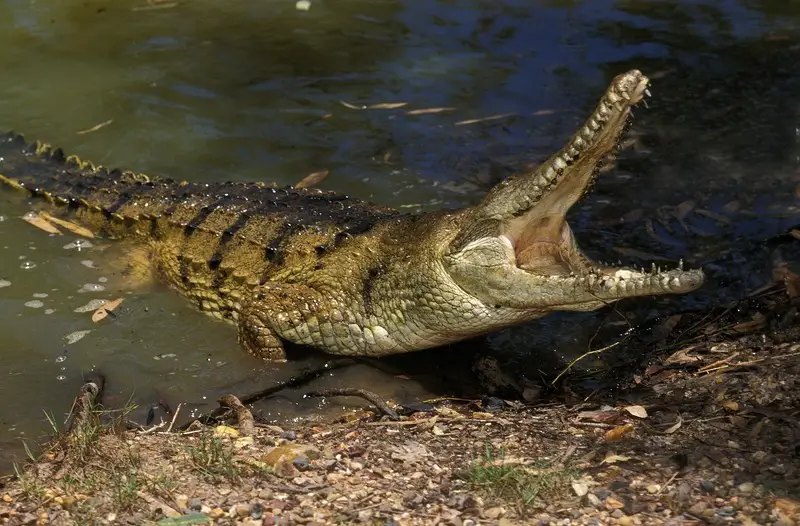A 12-year-old girl was tragically killed by a crocodile in the Northern Territory of Australia, authorities revealed on Thursday, July 4. The girl had been swimming in a creek in Palumpa, an isolated Indigenous community southwest of Darwin, when she was attacked. Her remains were found two days later.
The disappearance of the girl led to a substantial search operation involving ground, water, and air units. The discovery of her remains in the river system close to her last known location confirmed the crocodile attack, according to Police Senior Sgt. Erica Gibson. “The recovery has been made. It was particularly gruesome and a sad, devastating outcome,” Gibson informed the media.
Currently, the focus is on capturing the crocodile responsible for the assault. Saltwater crocodiles are known to be territorial and are likely to remain in the nearby water bodies, making it crucial to locate the creature. Gibson underlined that “efforts are continuing to trap the killer crocodile.”
The fatal attack has brought renewed attention to the growing population of crocodiles in northern Australia. Since being declared a protected species in the 1970s, the number of saltwater crocodiles has soared. It is estimated that over 100,000 of these crocodiles inhabit the Northern Territory, making it home to the world’s largest wild crocodile population.
Often referred to as “salties,” saltwater crocodiles can live for up to 70 years and continue growing throughout their lifespan, reaching lengths of up to 23 feet. The increasing numbers and sizes of these crocodiles have raised concerns among both residents and authorities. While fatal crocodile attacks on humans are infrequent, the presence of large crocodiles in populated areas presents a constant danger.
In response to the growing crocodile population, the Northern Territory government has undertaken several measures, including public education campaigns and removal of problem crocodiles from high-risk areas. However, these attempts have faced challenges due to the expansive and remote habitats these animals inhabit.
Dr. Adam Britton, a Darwin-based crocodile expert, noted the need to strike a balance between conservation and public safety in managing the crocodile population. He stated that the rise in the number of large crocodiles is a direct result of successful conservation efforts, emphasizing the need for increased vigilance among the public.
Despite the rarity of fatal crocodile attacks in the Northern Territory, the presence of large crocodiles in waterways used by locals and tourists continues to pose a significant threat. The last fatal attack prior to this incident occurred in 2018.
In light of the recent incident, residents of Palumpa and neighboring areas have been urged to be extremely careful around waterways and to pay heed to crocodile warning signs. The tragic loss of the young girl underscores the ongoing risks posed by the region’s wildlife.











